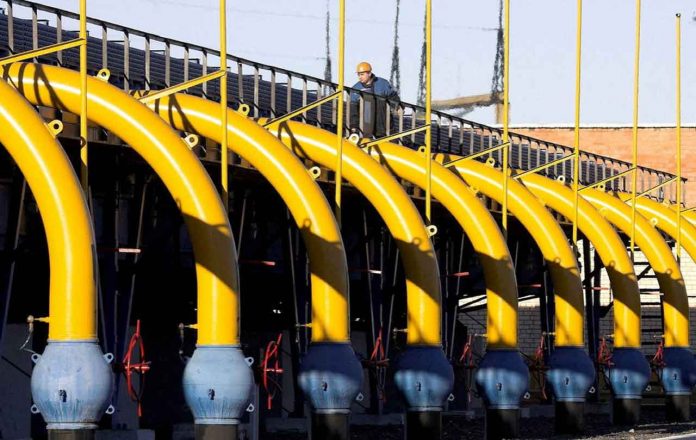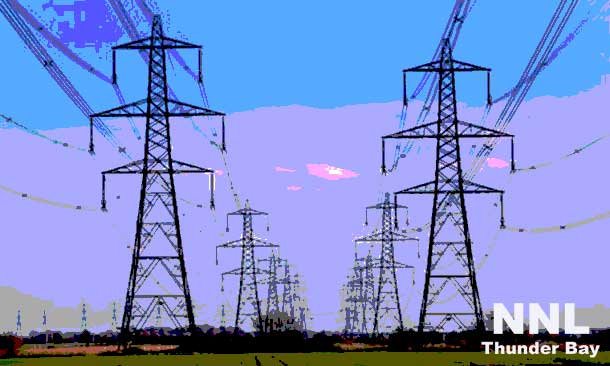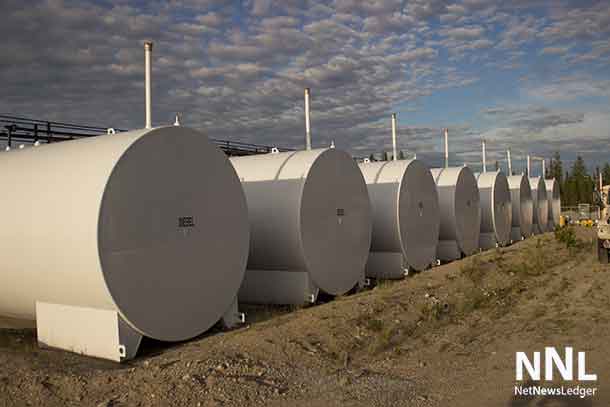Russia’s invasion of Ukraine “might be the biggest stimulus to the rollout of renewables that the continent has ever had”
– Invasion of Ukraine driving rethink of reliance on Russian gas
– Renewables seen as solution despite short-term fossil fuel boost
– Greater investment by governments needed in renewable energy
By Hugo Greenhalgh
LONDON – (Thomson Reuters Foundation) – As Russian troops encircle the Ukrainian capital Kyiv, European governments are scrambling to mitigate their exposure to Russian gas supplies in the face of public outcry over dependence on Moscow’s energy.
But as Germany mulls slowing its exit from coal and Holland considers ramping up gas extraction, energy experts suggest that, beyond short-term fixes, one ancillary effect of the Ukraine crisis could be a renewed commitment to renewable energy.
“In the context of European Union, this might be the biggest stimulus to the rollout of renewables that the continent has ever had,” said Richard Black, senior associate at the UK-based Energy and Climate Intelligence Unit.
“This is such a big crisis… clearly it is concentrating the minds of policymakers,” Black told the Thomson Reuters Foundation.
Last year, Russian gas accounted for approximately 45% of European Union total gas imports and almost 40% of the bloc’s overall gas consumption, according to figures from the International Energy Agency.
Germany and Italy are the EU’s two largest consumers, with Russian gas accounting for 38% of German imports alone, according to data on the Economy Ministry’s website.
Britain imports less than 5% of its gas needs from Russia, meaning the country is “in no way dependent on Russian gas supply”, Britain’s Energy Minister Greg Hands told the Thomson Reuters Foundation in emailed comments.
“To continue to protect consumers in the long term, we need to become even more self-reliant and generate more clean power in the UK whilst supporting our North Sea oil and gas industry as part of our transition,” the minister said.
“That means more offshore wind, solar, tidal, hydrogen and new nuclear.”
But while other countries might not be able to pivot so easily away from Russian imports, the fact the conversation has started is remarkable, said Rachel Kyte, dean of the Fletcher School of international affairs at Tufts University.
“This has been a moment where we’re now waiting to see how the EU wants to wean itself off Russian gas, which, two or three weeks ago, was an unimaginable conversation,” Kyte said.
On Thursday, the International Energy Agency released a 10-point plan for how the EU could reduce its reliance on Russian supplies.
The recommendations ranged from not signing any new gas supply contracts with Russia to, more crucially, investing in new wind and solar projects.
But if Moscow were to turn off the gas tap tomorrow – in retaliation for western economic sanctions – renewable energy sources are not yet in the position to pick up the slack, said Jonny Marshall, senior economist at British think-tank the Resolution Foundation.
“Not at the moment,” Marshall said. “Renewables generate when it’s windy or when it’s sunny, and the fact that we still rely on gas to make up that shortfall shows that renewables aren’t ready yet.
“But that doesn’t mean they won’t ever be ready,” he added.
Concerns have also been raised that countries’ short-term moves to increase fossil fuel production in response to the Ukraine crisis, including renewed lobbying in Britain for fracking, could stick.
However, Ajay Gambhir, a senior research fellow at the Grantham Institute on climate change and the environment at Imperial College, said existing commitments to a long-term switch to renewables made this unlikely.
“In the very short term, (increases in fossil fuel consumption) might be necessary,” Gambhir said.
“But it’s completely inconsistent with very challenging decarbonisation pathways to then start relying on gas and oil for anything more than a few emergency months or years.
“We’re just so close globally to blowing our carbon budget and exceeding 1.5 degrees C.”
Under the terms of the 2015 Paris Agreement, countries worldwide committed to limiting global warming to below 2 degrees Celsius above pre-industrial levels, with a preferred aim of 1.5C.
In a major new report published on Monday, the United Nation’s Intergovernmental Panel on Climate Change said that climate change is impacting the world far faster than scientists had anticipated.
U.N. Secretary-General Antonio Guterres warned that global emissions were set to increase by 14% over the next decade.
“That spells catastrophe,” he told reporters.
The solution is a massive investment into renewable energy infrastructure, said Christian Egenhofer, associate senior research fellow at the Centre for European Policy Studies.
But that means a huge financial commitment from governments, he added.
“The essential issue is the scale,” Egenhofer said.
“By 2050, in Europe, each year at a minimum we have to build at least twice, probably three times, (the) capacity that we have built every year over the past 10 years.”
Reporting by Hugo Greenhalgh @hugo_greenhalgh; Editing by Laurie Goering. Credit the Thomson Reuters Foundation







